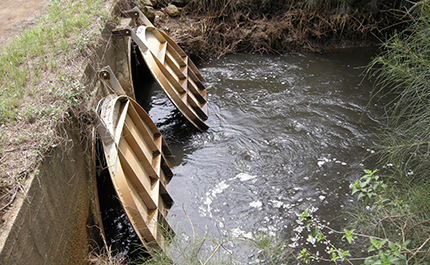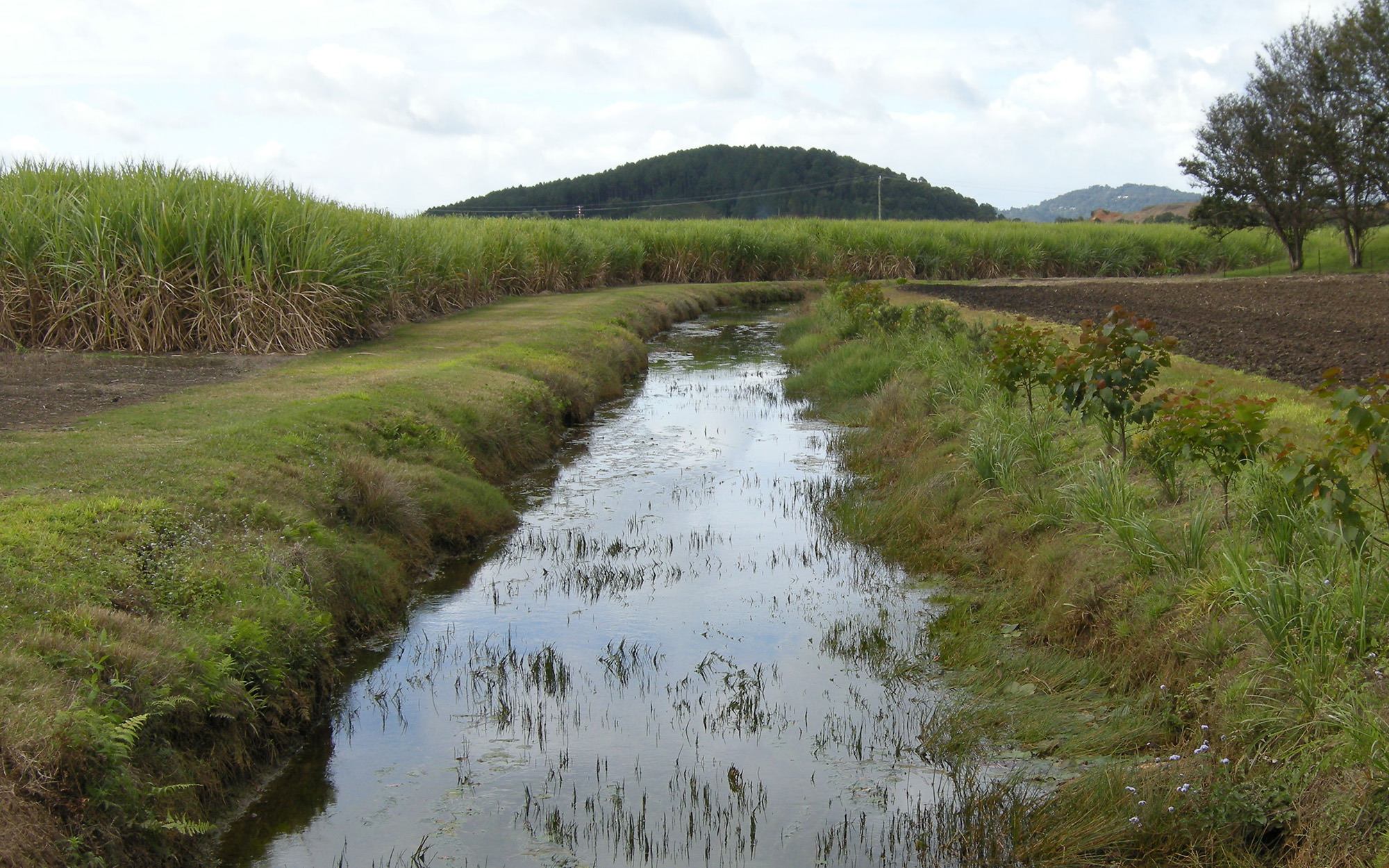About the project
The Coastal Floodplain Drainage Project commenced in 2019 and is one of several Marine Estate Management Strategy (MEMS) projects aiming to deliver healthy coastal habitats with sustainable use and development. The objectives of this project are to improve the regulatory framework for coastal agricultural drainage works and activities by:
- addressing the complexity, time and costs associated with the approvals process
- reducing the impact of these works and activities on downstream water quality, aquatic ecosystems, communities and industries.
The project’s focus is NSW coastal floodplains with extensive agricultural drainage systems, including the Tweed, Richmond, Clarence, Macleay, Hastings, Manning and Shoalhaven rivers.
The Water Group leads an interagency working group with representatives from the department’s Biodiversity, Conservation and Science Group, the Department of Planning, Housing and Infrastructure – Planning and Crown Lands, and the Department of Primary Industries and Regional Development (DPIRD) - Fisheries.
What we heard about the Options Report
Feedback from public consultation on the Options Report has been collated into a ‘What we heard’ report. The project’s working group is considering all feedback, which will inform the final recommendations to the NSW Government.
What we heard report
A summary of feedback on the Coastal Floodplain Drainage Project Options Report.
Download the What we heard report (PDF. 909KB)To stay informed about the project, we encourage you to subscribe to receive email updates from the Water Group, including our e-Newsletter:
You may also like to subscribe to the Marine Estate Management Strategy newsletter.
Options Report
The NSW Government is committed to improving the regulatory framework and water quality impacts associated with coastal floodplain drainage.
The Coastal Floodplain Drainage Project’s interagency working group has developed a report on options for reform that address the project’s objectives.
The six options are:
- Option 1: one-stop shop webpage
- Option 2: drainage applications coordinator
- Option 3: concurrent assessment
- Option 4: risk-based approach
- Option 5: drainage work approvals under the Water Management Act 2000
- Option 6: streamlining of DPIRD Fisheries and Crown land approvals through the use of drainage work approvals
Each of the options could be implemented independently (except for Option 6) or in combination with others.
The options are evidence-based and take account of social, cultural, economic and environmental interests, including a range of stakeholder views expressed during consultation in 2020 and 2021.
The Options Report PDF, 701.29 KB is accompanied by an Attachments paper PDF, 5583.81 KB that includes supporting information about the management of coastal floodplains.

We’ve answered frequently asked questions about the project.
Public consultation
Public consultation on the Coastal Floodplain Drainage Project Options Report ran from 19 February to 21 April 2024.
Consultation included an online survey, meetings with industry groups and online information sessions for interested stakeholders and community members.
The online information sessions were recorded and have been published below.
Watch the video
Session 1 – 5 March 2024 Watch the recording of the Coastal Floodplain Drainage Project community information session.
Watch the video
Session 2 – 8 March 2024 Watch the recording of the Coastal Floodplain Drainage Project community information session.
How the options were developed
The interagency working group initially consulted with local councils and peak bodies on the Coastal Floodplain Drainage Project in 2020 and 2021. The purpose of the consultation was to:
- gain a better understanding of stakeholder concerns about the regulatory framework for drainage infrastructure
- identify potential solutions to improve the framework.
The department's Water Group also independently consulted with local Aboriginal organisations to understand their cultural, spiritual and environmental concerns about drainage on coastal floodplains.
Following this initial consultation the department published a What we heard report (PDF, 4031.28 KB) in June 2022 summarising the feedback we received, and which was used to guide the proposed options for reform.
Related links
The department’s Water Group is also modernising the governance framework for joint private works schemes, including private drainage boards (drainage unions), which will simplify the rules for their administration.
Contact us
For more information or assistance reading the documents on this page, please contact Water Enquiries.
Phone: 1300 081 047
Image credit
All images used on this page and to promote the Coastal Floodplain Drainage Project Options Report have been supplied by the NSW Department of Primary Industries and Regional Development.
